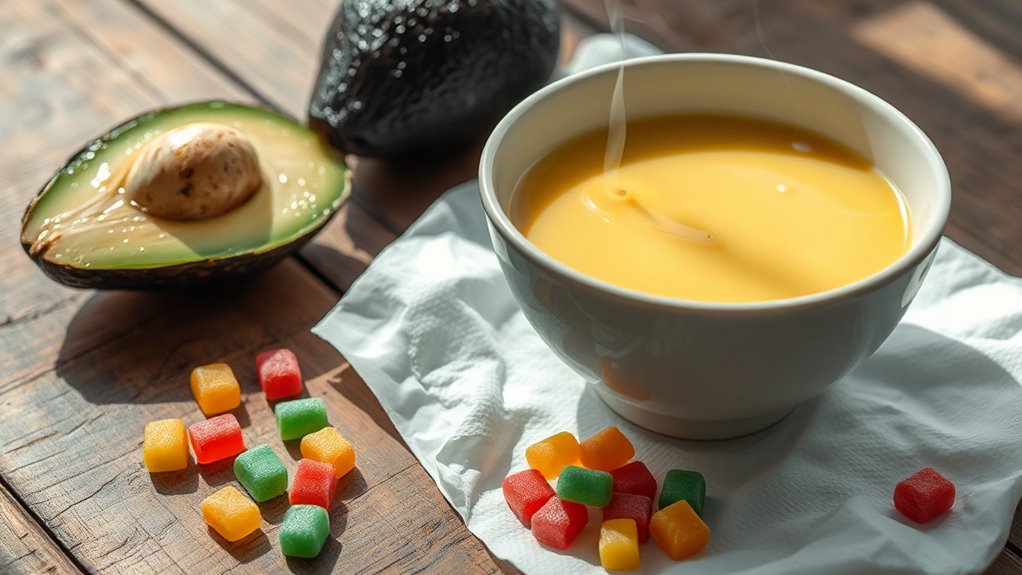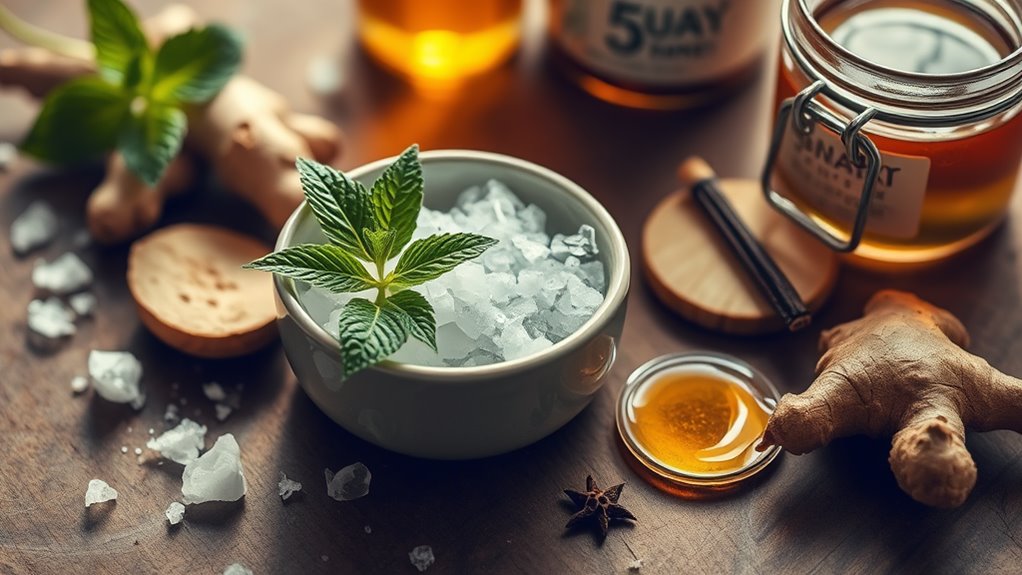What I Eat (and Avoid) When I Have a Toothache
When you have a toothache, opt for soothing foods like yogurt, mashed potatoes, and smoothies that won’t irritate your teeth. Stay hydrated with water, herbal teas, or clear broths. Avoid sugary, hard, and acidic foods that worsen pain. Stick to lukewarm meals and beverages to maintain comfort. You can also use home remedies like saltwater rinses and clove oil for relief. Want to learn more about managing your tooth discomfort?
Soothing Foods to Eat
When you’re dealing with a toothache, choosing the right foods can make a significant difference in your comfort level.
A toothache diet should focus on soft, non-irritating foods. Opt for yogurt, mashed potatoes, and smoothies, which provide nourishment without adding pressure on sensitive teeth.
Avoid crunchy or sugary items that can exacerbate pain, ensuring your meals support healing and comfort.
Hydrating Options for Relief
Staying hydrated is essential, especially if you’re coping with a toothache, as it can help reduce discomfort and promote healing.
Opt for water, herbal teas, or clear broths, which are gentle on your system. Warm liquids can soothe your mouth, while cold drinks can numb pain. Another helpful approach is to consider natural analgesics like warm salt water, which can provide additional relief when swished in the mouth.
Avoid sugary or acidic beverages, as they may worsen your symptoms and irritate your teeth further.
Foods to Avoid
Here are certain foods that can exacerbate the pain and discomfort associated with a toothache, so it’s wise to avoid them.
Here are three categories to steer clear of:
-
Sugary snacks – They can feed bacteria that worsen tooth decay. Consuming sugary snacks can lead to increased cavity risk and exacerbate pain.
-
Hard foods – Crunchy items may irritate or damage sensitive teeth.
-
Acidic foods – Citrus or vinegar can increase sensitivity and pain.
Temperature Considerations
Although everyone has different sensitivities, temperature can significantly affect your comfort level when eating with a toothache.
Generally, it’s wise to avoid extreme temperatures. Hot foods may aggravate the pain, while very cold items can cause sharp discomfort.
Opt for lukewarm meals and beverages to minimize sensitivity. Listening to your body’s signals will help you determine the best temperature for your comfort. Additionally, be mindful of substances with natural anesthetic properties, like clove oil, which can provide relief during painful episodes.
Home Remedies to Complement Diet
While managing a toothache, incorporating specific home remedies into your diet can enhance comfort and support healing.
Try these remedies:
- Saltwater rinse: It can reduce swelling and promote healing.
- Clove oil: Known for its natural numbing properties, it helps alleviate pain.
- Cold compress: Apply it to your cheek to minimize inflammation and discomfort.
Adding a clove oil application can provide an immediate numbing sensation to the affected area.
These simple additions can make a significant difference.




